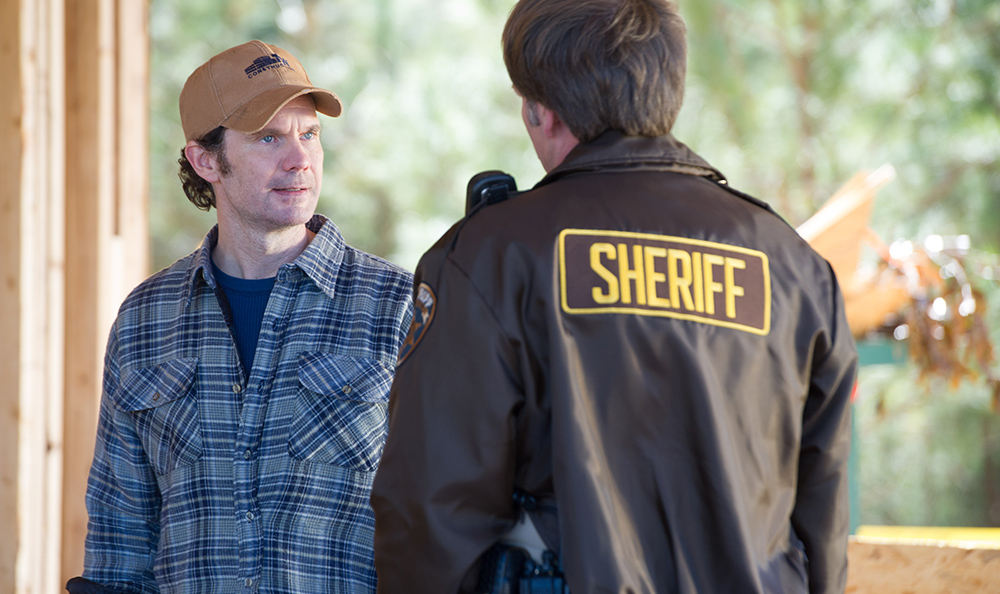(The following review contains spoilers. It is written under the assumption that you have seen season three of Rectify)
Six episodes is not a lot of time to move a story forward. While the overall runtime is comparable to three films, the storytelling demands of television require a much different pace. Full stories must be conveyed on a weekly basis, several characters need to be serviced, and story reveals need to be parsed out to keep the audience coming back. For most shows, this means that such a short number of episodes is simply not enough to tell the full story.
However, for Sundance TV’s Rectify, I would argue that six episodes is just about right. While the cast of the show is quite large, the scenario itself is relatively uncomplicated. The writers are far more interested in how the events depicted effect the various characters than moving the plot forward at a “normal” television pace. Given the ratio of character-driven scenes to plot-driven scenes, extending Rectify out begins to feel like something of a burden on the viewer. But in small doses, Rectify’s quiet charms have just the right amount of space to breathe.
This is especially apparent in season three. The short episode order forces the writers to keep things moving ahead with George’s murder investigation and Daniel’s banishment, but doesn’t detract from the show’s focus on character and theme. Rectify has always been more interested in the repercussions of injustice and prison sentences than it has plot points, and season three continues to dig into these themes in new and exciting ways.
My favorite episode this year was the finale, “Source.” Like much of the series, the episode calls into question a character’s guilt and emphasizes the joy and intimidation that come with freedom. However, it approaches both themes from unexpected perspectives. For the first time in the series, characters are not fixated on Daniel’s guilt. Instead, the perpetually shifty and generally reprehensible Trey is at the mercy of Sheriff Carl, who has determined that Daniel was being set up for George’s murder.
This plotline is excellent, because it provides us with insight into how an innocent party could be convicted of a crime that they did not commit without involving Daniel at all. Trey is a despicable character, and there is some satisfaction in seeing him finally get caught up in all of his lies. But as a viewer who has been following the show since season 1, we know that he’s telling the truth here: he did not kill George. George killed himself. Trey planted evidence to get the police off of his trail, but it was out of fear. Trey is guilty of a lot of things: rape, obstruction of justice, conspiracy. But the one thing he’s being targeted for is the one crime he did not actually commit.
It brings us back to the title of the show. To rectify is to set right, but what is “right?” We’ve seen how Daniel’s sentence ended due to DNA evidence, but the man is permanently damaged by the nineteen years he served in prison. There is no way to truly set injustice right once it has already left its mark. Trey absolutely deserves his comeuppance, but a conviction for a crime he did not commit is still an injustice.
Daniel’s plotline in the finale is excellent, as well. He finally leaves town, alongside his mother, in what is ostensibly a punishment for a crime he confessed (albeit dishonestly) to having committed. However, this punishment is a complete reversal of his initial one. Prison forced Daniel into confinement, and banishment forces him out into the world. There’s a great moment where he takes his mother to a location where they can both see the prison. He talks about how he wished sometimes that he could just go back. “You’re not the first to romance the cocoon,” his mother tells him.
But the episode does not only focus on the terrors of the world at large. When Daniel returns to the ocean (the “source” of the title), it is symbol of catharsis, of finally re-accepting the world around him. Daniel’s renewed optimism is unmarred, even by a visit to the saddest seafood restaurant I’ve ever seen.
Again, very little happened in this season of Rectify, but the clarity of its themes has never been stronger. I have some concerns about the show continuing for too long, but Ray McKinnon and his writers have continued to find new ground to cover regarding injustice and confinement. With most characters in a new scenario, season four should have plenty of room to reframe these themes and approach them anew. I see no reason why Rectify cannot remain one of the most unique shows on television.
